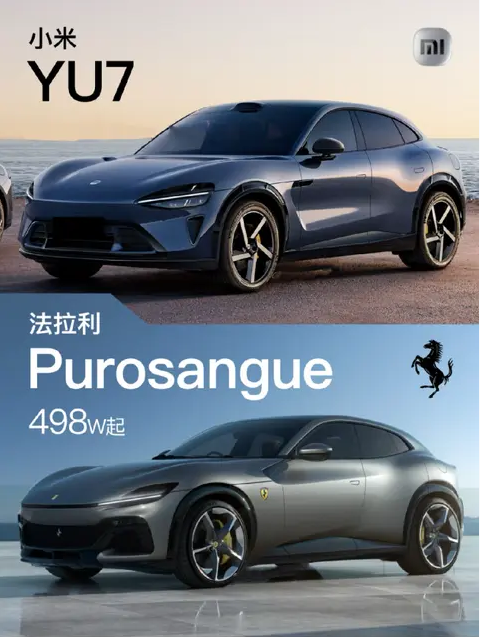As the automotive industry moves toward software-defined vehicles (SDVs), legacy automakers face a critical challenge: adapting to the fast-evolving world of smart car technology. Ferrari, one of the most prestigious names in automotive history, is no exception. To stay ahead in the era of intelligent, connected vehicles, Ferrari should consider collaborating with tech-driven companies like Xiaomi – and perhaps even acquire a stake in Xiaomi to secure access to cutting-edge software and hardware expertise.
Ferrari’s Challenge in the SDV Era
Ferrari has long been known for its excellence in high-performance combustion engines and track-proven driving dynamics. However, the modern automotive landscape is shifting toward SDVs, where software, artificial intelligence, and connectivity play as significant a role as mechanical engineering. With around 5,000 employees, Ferrari’s workforce is relatively small compared to tech giants and mass-market automakers that are aggressively investing in software development.
Unlike companies like Tesla or even Porsche, Ferrari does not have the same level of in-house expertise in autonomous driving, infotainment systems, and AI-powered vehicle management. Developing these capabilities from scratch would require significant investment in both talent and infrastructure – costs that could be mitigated through strategic partnerships or acquisitions.
Why Xiaomi?
Xiaomi, a global leader in consumer electronics, has rapidly expanded into the electric vehicle (EV) industry with its new Xiaomi SU7 sedan. With a strong foundation in AI, IoT, and smart device ecosystems, Xiaomi is well-positioned to drive innovation in connected and software-driven vehicles.
By acquiring a stake in Xiaomi – perhaps 10% or more – Ferrari could gain access to Xiaomi’s expertise in:
- Smart Cockpit Development: Xiaomi’s user experience in smartphones and smart home devices can translate into high-quality, AI-driven vehicle interfaces.
- Autonomous Driving and AI: Leveraging Xiaomi’s advancements in AI-driven automation could help Ferrari integrate smart driving features while preserving its signature performance-oriented experience.
- Cost-Effective Software Development: Instead of building an entirely new software division from scratch, Ferrari could tap into Xiaomi’s existing talent and R&D.

A Strategic Stock Swap
A potential Ferrari-Xiaomi collaboration could also be structured as a stock swap, allowing both companies to benefit from each other’s strengths. Ferrari would gain a foothold in the smart vehicle revolution, while Xiaomi would secure a strategic partnership with one of the most prestigious car brands in the world—enhancing its credibility and market influence.
Lei Jun, the visionary founder of Xiaomi, has shown a strong interest in EVs and may be open to working with Ferrari to bring smart technology into high-performance cars. Such a partnership could not only reduce Ferrari’s development costs but also ensure that its cars remain cutting-edge in the digital age.
Should Legacy Automakers Collaborate with Tech Startups?
Ferrari’s case is not unique. Traditional automakers worldwide are facing similar challenges as they transition toward software-driven mobility. Companies like Mercedes-Benz, Volkswagen, and General Motors have already partnered with tech firms to accelerate their software and AI capabilities.
In the coming years, successful automakers will likely be those that embrace collaboration rather than trying to build everything in-house. By joining forces with tech leaders like Xiaomi, Ferrari can continue delivering its signature driving experience while staying ahead in the rapidly evolving automotive industry.
Would such a move make sense for Ferrari? What other automakers should follow a similar strategy? Share your thoughts below!